He does business worth $100 million annually in Latin and South America
By Gurmukh Singh
BRAMPTON: Brampton businessman Sandeep Gupta is a quiet self-effacing man. But behind his quiet exterior burns a fiery desire to succeed, succeed…and succeed.
Indeed, this Indian-born multimillionaire textile entrepreneur is a workaholic who wishes there were 48 hours in a day.
“I am always short of time. And I just cannot relax and stop working. My mind keeps thinking about creating more business,’’ says this soft-spoken man from Karnal in Haryana who has spun an international business in yarns and textiles in North, Central and South America.
“Sometimes I feel tired of myself because of this habit of working non-stop,’’ he laughs.
Adds his wife Puja, “Yeah, he is too absorbed in his work. I wish he would have more time for himself.’’
With its offices in Mexico, Colombia and Argentina, his group Aarti Impex does business of over US$100 million annually by selling yarns, fabrics, textiles, and dyes and chemicals in Latin and South America.
“We source thousands of containers from India and other Asian countries each year for our major markets in Colombia, Argentina, Peru, Mexico, Ecuador, the Dominican Republic, Guatemala and Bolivia,’’ says Sandeep who landed in Canada only in 2002.
In just 17 years, this driven businessman has built a multimillion, cross-continental business empire.
Furthermore, he also runs Aarti Financing which is a private mortgage lender for housing and commercial purposes.
Sandeep also owns plazas in Niagara Falls and North Bay, an industrial property in Hamilton and other commercial units.
“I am now entering the hotel business and also looking at buying new plaza buildings. We are also planning to enter the construction business – building condos,’’ says the businessman who was born to an ordinary cloth merchant in India.
For his big achievements in the business world in such a short period, the newly formed Haryana Association of North America (HANA) has just honoured their son of soil with the first Haryana Ratan Award.
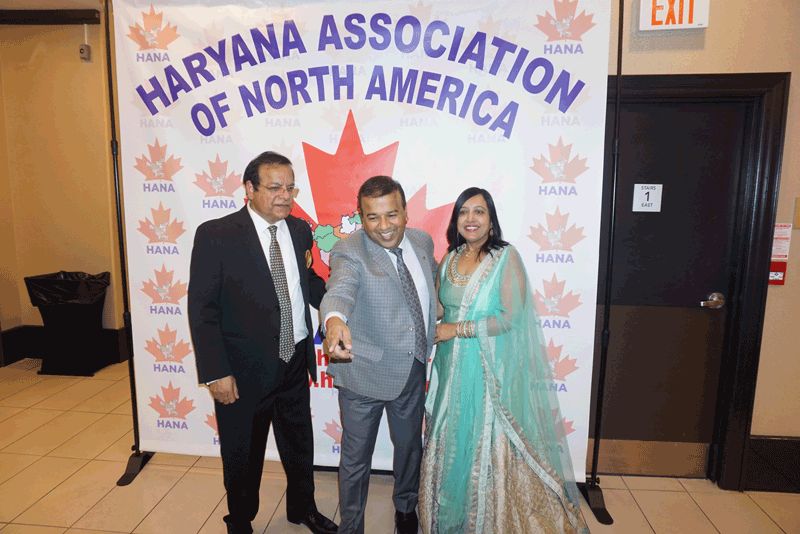
In this interview with The Canadian Bazaar, Sandeep narrates various turning points in his life which made him an accidental textile engineer, an accidental Canadian and an accidental businessman.
“Definitely, I believe in destiny,’’ he says, sitting in his cozy bungalow in Brampton as his wife Puja, daughter Rachita and son Haardik join in the conversation.
Q: Since you are so good in business, do you have a business background?
My father was a cloth merchant who ran a shop in Karnal where I and my five siblings were born. That’s all.
Q: So you weren’t a born businessman, right?
No, I wanted to do an engineering course, but I got the branch I didn’t like. The only other alternative was a textile engineering course offered at the Technological Institute of Textile & Sciences (TIT&S) in Bhiwani in Haryana. So, I ended up doing that four-year B. Tech degree in textile engineering.
Q: Then?
My father didn’t want me to leave our city. But I said: let me explore the world. I was the first in our family to go out of the city for a job.


Q: Where did you go for a job?
I was recruited as a trainee engineer from our campus by Reliance Industries Limited for their Naroda plant in Gujarat. Reliance had a great reputation. I joined them in 1994, with a monthly stipend of Rs 3,000. Then I became a shift engineer, getting about Rs 8,000 ($120) per month. But I always wanted to make more money.
Q: So what did you do to make more money?
My maternal uncle in Delhi manufactured suitcases under the brand name of Noble and selling them to wholesalers. He asked me if I could sell his suitcases in Ahmedabad. I explored with retailers in Ahmedabad to know whether they would buy from me. They said `yes’.
I told this to my maternal uncle, and he called me to Delhi to explain the business process. I went back to Ahmedabad with samples of suitcases and started selling them in the market. I used to own a Suzuki Samurai motorcycle and load suitcases on both sides at its back and drive around the city to deliver them to suppliers.
Q: And you were still working as a textile engineer with Reliance?
Yes, I was still working my shifts at Reliance. They had no problem with my side business. In fact, I smartly managed my work shifts in such a way that I had enough time to sell suitcases. Pretty soon, I was making Rs 30,000 to Rs 40,000 per month – many times more than my salary at Reliance.
Then I expanded my sales to other cities in Gujarat. At peak, I sold seven to eight truckloads of suitcases. Since I was now doing so well in business, I began to think about quitting my three-year-old job with Reliance.
Then my maternal uncle asked me to buy plastic waste in Gujarat and ship that to Delhi to be used as a raw material for making suitcases. That business also worked very well. I was making up to Rs 80,000 (about $1,500) a month – which was a lot of money in those days.
After this, my maternal uncle and I were looking for a suitable building to start a plastic factory when my life took a very unexpected turn.
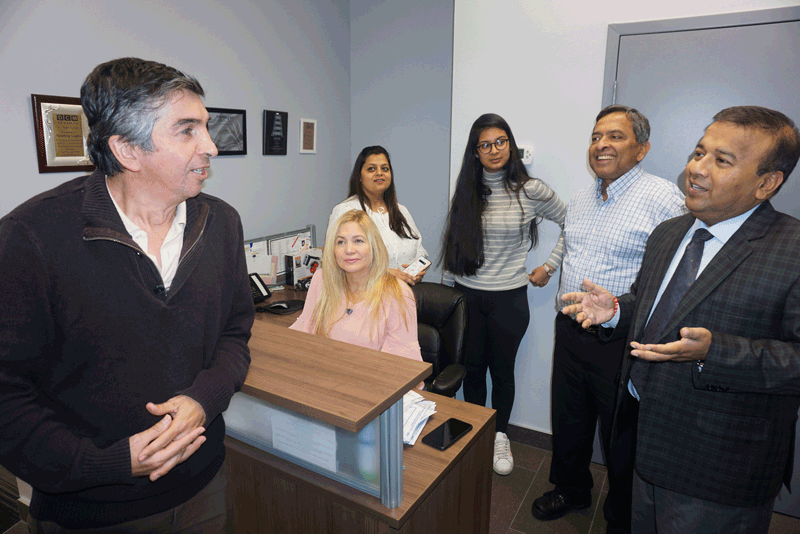

Q: What unexpected turn did your life take?
Because of some family issues, my business dealings with my maternal uncle stopped. It was a big turning point in life. Otherwise, I would be in plastic business in India today, not living here in Canada.
I had a great life in Ahmedabad at that time. I was just 23 and making very good money. Suddenly, this thing happened, and I was in total shock. I wondered what to do next. Go back to my hometown of Karnal? Sit in our family shop the whole day?
My father asked me to come back, but I told him that I don’t want to be a salesman– sitting in a shop all day long.
Q: So, what did you do next?
I applied for a job at Arvind Mills in the city (Ahmedabad). They hired me for production work, promising me to transfer to sales later if I could earn an MBA degree. So, I enrolled at the local Som Lalit Institute of Management for my part-time MBA. I worked for Arvind Mills for five years even as I got married in 1997. Dad was pushing me hard to marry the girl the family had chosen for me (laughs).
After my MBA degree, Arvind Mills moved me to sales and later put me in charge of their export markets – Hong Kong, Taiwan, South Korea, Singapore and Malaysia. I started travelling to those countries. And those travels turned out to be the second turning point in my life.
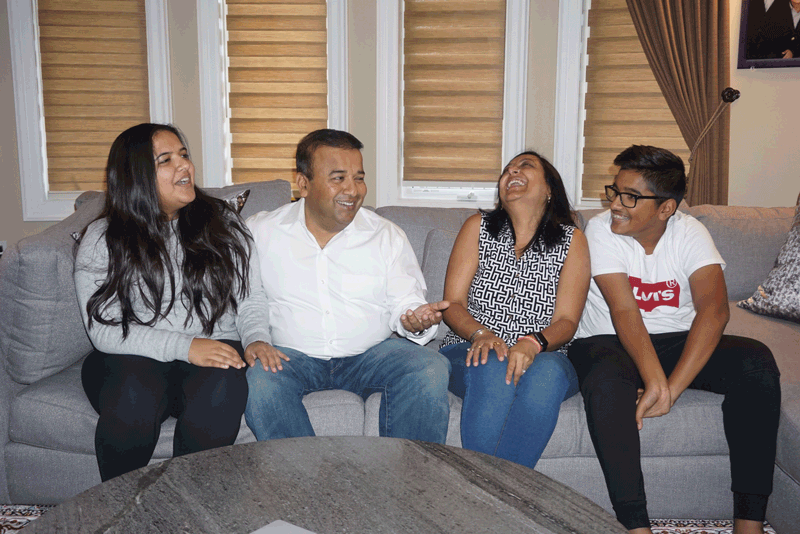

Q: How these travels became the second turning point in your life?
During travels to those countries, I started realizing how life was different outside of India. I caught the bug to leave India.
At that time, Canada, Australia and New Zealand offered open immigration to professionals. I chose to emigrate to Canada.
Q: Why did you choose Canada?
I was influenced by my many Gujarati friends. For most of them, the US was the ultimate destination and Canada was their route for that destination. So, I also thought that way. Then I also did my research and found Canada was a better choice because of the size of its economy and proximity to the US.
I went to the WWICS office in Ahmedabad and applied for immigration as they found my credentials okay. I got my permanent residency in 2002.
But since I was now at an upper middle level position at Arvind Mills and making very good money along with perks, I got confused – whether to leave this job and go to Canada. My family was also opposed to my decision to leave a very settled life. But I said: `Dekha jayega (come what may, we will see).’


Q: So that’s how you landed in Toronto, right?
I landed in Toronto with my wife and little daughter on August 18, 2002.
But before coming here, I was searching for job possibilities in the textile sector in Canada when someone in Ahmedabad told me that an Indian-owned spinning mill (Atlantic Yarns) in New Brunswick was looking for a sales manager for their Mississauga office. So, I contacted them and they decided to interview me in Ahmedabad. But I told them I am coming to Canada. So, they interviewed me in Mississauga and I got the job on September 8, 2002.
Q: You got a job in your field within 20 days of landing in this country where newcomers struggle for years to get their credentials approved let alone land a job. Weren’t you very lucky?
Yes, I was very lucky. My wife also found some job within three days. We stayed for 15 days at a basement apartment arranged for us by WWICS and then we shifted to an apartment near to Albion Mall.
In my sales job, I looked after the local market initially and then expanded to other cities.
Q: When did you get your first major break in Canada?
I got my first major break when I managed to make a Brantford-based company called Tigerbrand as our major client. My company had previously tried to get that company as a client, but they didn’t succeed. Par main toh unke pichhe pad gaya (I just chased their decision-makers) and in the end their CEO agreed to see me. I gave my presentation and won them as our client. Both the CEO and the president praised me for that accomplishment.
That’s why when our company started exploring Latin American markets, the president put me in charge of it. I travelled there and got big orders. The large presence in Latin and South America of our alumni from my alma mater (TIT&S in Bhiwani) also helped me a lot. I started making good sales in terms of volume in Latin and South America.
But because of pricing factors, these big Latin American sales didn’t help our company because it was losing sales in the US and Canada at that time.
I spoke to the chairman and told him to shift the business focus from yarn production to trading – that we should simply buy the yarn from Asia and sell it in Latin and South America. He told me: Prove yourself and show me the profits. I bought three containers from Asia for our company and sold them for a big profit. But our chairman was not convinced. His focus was only on production. He didn’t have the mindset of trading.
That turned out to be the third major turning point in my life.
Q: Explain this third turning point in your life.
I saw the business potential in Latin and South America, but my company bosses didn’t believe me. So, I decided to quit. My chairman promised to double my salary. But my mind was made up. I quit them in 2005 and started selling containers of raw yarn from India to Latin and South America under the name of Aarti.
Q: How did you build your yarn/textile trading business empire in Latin and South America in a short period?
I started with five containers and first targeted Colombia, Guatemala, and the Dominican Republic. We started with cotton yarn, then poly viscose and then polyester, etc.
Now we have expanded to all major Latin and South American markets and sell over 200 containers each month.
In 2012, we started our own yarn manufacturing plant near Panipat. It is a prime property spread over eight and a half acres near Highway No 1 in India.
Apart from our headquarters in Brampton, we also have offices in Mexico, Colombia and Argentina.
Q: What are your other businesses?
In 2010, I bought a plaza in Brampton but sold it later. In 2015, I bought another plaza in Niagara Falls and then another one in North Bay in 2017. I also have a huge industrial building in Hamilton and total 100,000 sq. ft commercial/industrial area.
We are also doing mortgage lending business under the name of Aarti Financing.
Q: What are your future plans?
Though I have no hotel experience, I am going into the hotel business…looking at the possibility to acquiring Hilton or Holiday brands, etc.
We are also looking at buying more commercial plazas as well as entering condo building business.
My hands are full.
Q: Talking about your personal side, do you believe in destiny?
When I look back, I can safely say that destiny has played an important role in my life. First, when I got admission into textile course – not other engineering course. Second, when I had to quit my maternal uncle’s business. Third, when I came to Canada. Fourth, when I decided to quit my job to start my own trading business.
Q: So you’re a risk taker, right?
Yes. I took lots of risks, but things worked out well for me. Though I have no experience in running hotel, I am planning to invest millions in this business. I believe it is a calculated risk.
Q: What if you had stayed back in India?
I would have become a senior manager in some textile company by now. Or maybe I would have set up my own textile plant.
Q: What gives you the utmost happiness?
I am the kind of guy who is utmost happy doing his job, though my family is tired of this habit of mine. I am always looking at how to add new clients, sell more containers and create more wealth.
Q: What is one thing you wish you would have more of?
Time. I am always short of time.
Q: How important is money in your life?
In the last few years I have realized that money is not everything. I must have local contacts to establish myself in my own community.
Q: Does money give you happiness?
It does, but money is not everything. It just plays its role.
Q: Do you have any superstitions?
None.
Q: Are you religious?
I am not very religious.
Q: What do you dislike the most in people?
Bragging.
Q: Is there anything that you lose your sleep over?
Yes, when there are quality complaints and credit disputes in business.
Q: How do you relax?
By watching Bollywood movies with my family.
Q: Your favourite actors.
Amitabh Bachchan and Rekha.
Q: Your favourite holiday destination.
We take family holidays thrice a year, but we have no favourite destination. Recently, we had the chance to travel to Ireland. It is a great experience.
Q: Your favourite books.
Dale Carnegie’s How to Win Friends and Influence People, Gandhi’s My Experiments with Truth, Obama’s Dreams from My Father, and Elon Musk’s book on business lessons.
Q: Do you have any role models?
In business, I know some customers who have done amazingly well. I want to be like them.
In life, Indian Prime Minister Narendra Modi is my role model. I lived in Ahmedabad when he was the chief minister of Gujarat. But his family lived a very simple life. Now he is the Prime Minister of the country, but his family is still living the same simple life in Ahmedabad. Modi has detached himself from his family to serve the much larger family of India. For this very reason, he is my role model. (Updated: This story appeared her first on Nov 20, 2019)
READ ALSO: How Kuldeep Sharma created Crown Group of Hotels in Canada

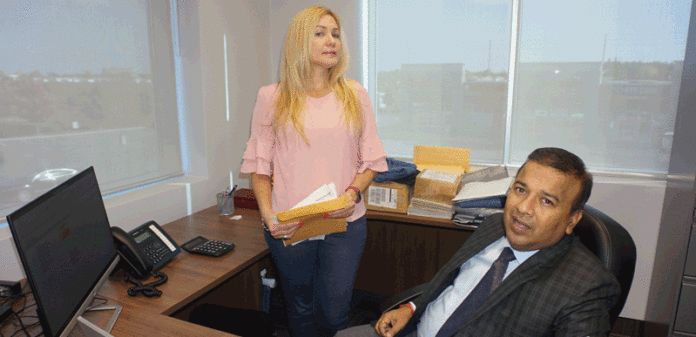


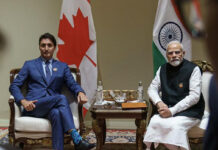
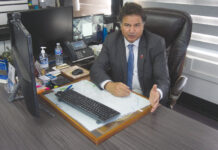



[…] Check out for More Details >> […]